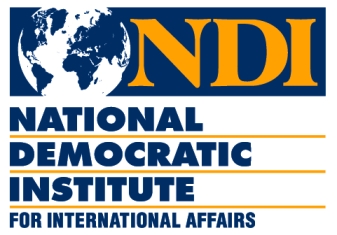How social media can bring trust to Guinea’s 2011 elections
The following post is the response given to oAfrica by Francoise Stovall, Interactive Communications Manager at the National Democratic Institute for International Affairs (NDI). Guinea’s legislative elections are to be held on 11/27/2011. How can Nigeria’s experience with crowdsourcing apply to Guinea, a nation where social media is less prominent and fact often gets tangled with fiction?
Question: What’s your take on how mobile or social media can facilitate trust & communication in the upcoming #Guinea elections?
Answer: NDI’s Technology team, drawing upon its regional and global experience in this realm, has the following response:
Social media provides a way for election officials to share information about what’s going on, communicate it to an engaged audience, and build public trust in the electoral process. For example, in the 2011 Nigerian elections, Nigeria’s Independent National Election Commission (INEC) did a wonderful job of communicating over twitter and other social media channels. However, it’s important to note that this type of dialogue requires proactive engagement and interest from such organizations. It provides a way to directly engage with those organizations publicly – if people see incidents or violations, they can communicate them to the authorities who can (theoretically) themselves respond. Using a collective hashtag on Twitter (if there is enough of an internal user base to make it viable) is a way for citizens to self-aggregate and share information. Eg, if the tag is #guinea11 then people can use it in their tweets to connect to all the folks communicating on the topic.
Citizen reporting can provide an avenue for people to share stories of legal violations, as mentioned above, but can also be a way to name-and-shame electoral code of conduct violations if that has been established. If there are CSOs who are attempting to collect and manage citizen reports it can be a good way to hold officials accountable for violations. There are significant challenges with such a “crowdsourcing” program, but in the right place can be a powerful methodology.
In the Guinean context, establishing public trust in the electoral process is indeed a challenge. Beyond the advantages of using social media and new technology to connect citizens to government, it’s also important to recognize the flipside of this: Social media can be the perfect way to spread pure rumor and hearsay – or worse, malicious, inflammatory information. It can prove an opportunity for the online community to work together to try to verify reports and quash misinformation. To enhance the transparency and credibility of Guinea’s upcoming legislative elections, NDI will be working with its local partner Consortium for Domestic Election Observation (CODE) to deploy citizen observers to polling sites around the country on election day to independently and systematically collect, analyze, and report information about election-day proceedings. As part of this effort, CODE and NDI, drawing on regional and international best practices, will explore ways to use social media, or to partner with organizations that are doing so, in order to better achieve its goals.
CODE used cell phone technology in its last observation effort (the country’s presidential elections of 2010) for improved reporting speed. CODE’s 2000+ citizen observers covered 20% of Guinea’s polling stations, and the coalition’s calculated election results were within 1 percent of those announced by the CENI.
—
Learn more about upcoming African elections and how you can support government accountability: Connect with NDI on Facebook | Follow NDI on Twitter | Give to NDI













 Twitter
Twitter Facebook
Facebook Pinterest
Pinterest